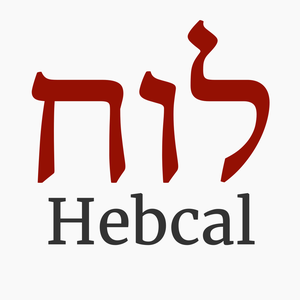Your comments
Your DNS server is caching IP addresses much longer than it should. We changed our IP address more than 24 hours ago, and for some reason your Internet Service Provider is not respecting standard DNS Time-To-Live.
$ host www.hebcal.com
www.hebcal.com is an alias for www-vip.hebcal.com.
www-vip.hebcal.com has address 129.212.148.210
If you're running your own DNS and caching beyond standard TTLs, flush your cache. Otherwise, ask your ISP to follow Internet standards.
Can you try these instructions for Outlook for Windows Classic (not “New Outlook”) and tell us if they work for you?
- Read instructions at https://www.hebcal.com/home/210/icalendar-ics-jewish-holidays to create your calendar and get the Hebcal iCalendar download URL
- Open your Outlook calendar, and on the Home tab, select Add Calendar > From Internet.
- Paste the URL from your internet calendar and select OK.
- Outlook asks if you would like to add this calendar and subscribe to updates. Select Yes.
You can enter a negative date such as -123 for 124 BCE in our date converter, e.g.:
https://www.hebcal.com/converter?gd=11&gm=1&gy=-123&gs=on&g2h=1
Or on our custom calendar tool, e.g.:
https://www.hebcal.com/hebcal?v=1&year=-586&yt=G&i=off&maj=on&min=on&nx=on&mf=on&ss=on
Warning! Converting between Hebrew and Gregorian dates for very early years is mathematically possible, but the results should be treated as approximations rather than historically precise dates. [1]
Thank you for the bug report! The issue is now fixed. If you don't see the fixes on your end, please try using shift-Reload to force your browser to refresh the PDF file when you print .
Please accept our apologies for the temporary inconvenience.
We spent an hour with the current Outlook and see what you mean - somehow they decided to remove the List View!
happy to hear that this resolved your issue!
Our recommended workaround is to use multiple calendar subscriptions.
Daf Yomi and other daily learning multi-year iCalendar feeds are also available at https://www.hebcal.com/ical/#learning for Apple, Google, and any iCalendar application. Because each of these dedicated calendar feed is guaranteed to contain only a single daily learning schedule, we can control the length and provide multiple years of event lookahead.
An added advantage of the multi-subscription approach is that you can choose separate colors in Google Calendar or iOS/iCloud calendar for each calendar event feed.
We're really sorry we can't cram everything into a single iCalendar feed for multiple years in the future. Size limitations imposed by Google and other calendar clients starting in 2016 require that Hebcal limit the number of events per calendar feed. If the options you select generate many events, the feed may need to be shortened
Hi, try following these instructions and let us know if they work for you?
https://www.hebcal.com/home/58/outlook-csv-delete-hebcal-jewish-calendar
Hebcal.com displays advertisements on some pages to help cover our operating costs. We don’t like inappropriate advertisements and it’s our policy to suppress them when we discover them.
If you see an inappropriate or offensive advertisement, please accept our sincere apologies for any offense caused.
We're investigating now and hope to find the tarot card advertisement.
Hebcal.com is a free service, and Income from displaying advertisements offsets the cost of hosting the website. Donations are always appreciated and never required, and they cover only a small part of the operating costs.
Customer support service by UserEcho


We are not blocking your IP address.
Your DNS server is caching IP addresses much longer than it should. We changed our IP address more than 24 hours ago, and for some reason your Internet Service Provider is not respecting standard DNS Time-To-Live.
If you're running your own DNS and caching beyond standard TTLs, flush your cache. Otherwise, ask your ISP to follow Internet standards.